108 videos match your search.
 |
Rory Foulger Our programs push students to deeply engage in their subject area while becoming resilient and self-motivated computational thinkers. Educators, parents, and students are welcome to come and explore the intentional ... |
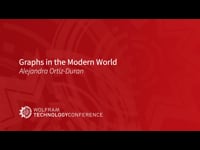 |
Alejandra Ortiz-Duran This talk provides an overview of graph-based models for analyzing infectious disease dynamics. It covers deterministic compartmental models and explores agent-based simulations, illustrating how graph theory plays a vital role ... |
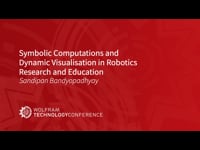 |
Sandipan Bandyopadhyay Wolfram Mathematica can be very helpful to Robotics teachers or a researchers. I developed several symbolic codes to solve benchmark problems in the field of parallel manipulators, and created computational ... |
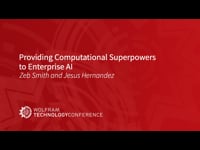 |
Zeb Smith and Jesus Hernandez We realized the opportunity to give LLMs access to Wolfram’s computational superpowers by developing one of the first major plugins for Open AI’s ChatGPT. Using the methods and ... |
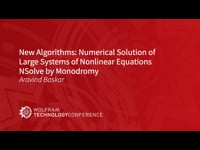 |
Aravind Baskar We propose and implement a novel algorithm using monodromy to solve large systems of analytic nonlinear equations. This work was done during my internship at Wolfram Research, Inc., Calculus and ... |
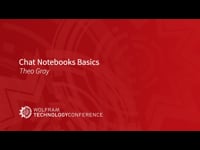 |
Theo Gray |
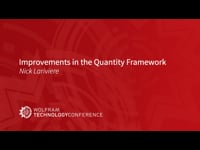 |
Nick Lariviere This talk provides and overview of the improvements and optimizations made to Quantity and related functions in Wolfram Language. Topics include the discussion of recent updates to the conversion and ... |
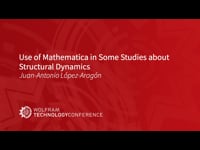 |
Juan-Antonio López-Aragón This presentation summarizes the modules that the authors have implemented and that they have used as support in the academic studies that they are carrying out in the field of ... |
 |
Richard Hennigan |
 |
Ramesh Adhikari, Ph.D. Mathematica is a powerful computing environment that offers tools for financial computations, simulation, optimization, risk management and forecasting. This talk demos built-in financial functions and custom functions for financial data ... |
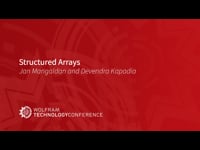 |
Jan Mangaldan and Devendra Kapadia We discuss recent features in Wolfram Language related to the representation of and computation with structured arrays. Representing matrices as structured arrays, whenever feasible, often leads to efficiencies in storage, ... |
 |
Tigran Ishkhanyan This talk will give an overview of the "classical" pFq hypergeometric functions, the four Appell functions (AppellF2, AppellF3 and AppellF4 were introduced in Version 13.3), and the upcoming BilateralHypergeometricPFQ function. |
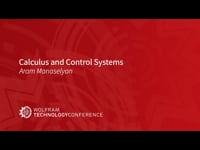 |
Aram Manaselyan This talk covers the strong interconnections between calculus and control systems in Wolfram Language, and how one can use system models such as state-space models or transfer function models in ... |
 |
Maureen Baehr and Ben Kickert Misinformation and other attacks on the Sustainable Development Goals and ESG investing have increased dramatically in the past year. We use new Wolfram LLM tech as well as other core ... |
 |
Brett Champion |
 |
Min-Hsuan Peng |
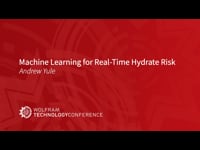 |
Andrew Yule This talk will discuss how the advanced neural network framework within Wolfram Language was used to train and develop a model built from simulation-based data that went on to be ... |
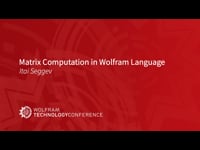 |
Itai Seggev Mathematica and Wolfram Language have long had strong capabilities in linear algebra. In this talk, we will survey the scope of these capabilities, including long-time strengths, recent feature additions (including ... |
 |
Dan McDonald, Peter Barendse and Xiaofan Zhang We present updates to the automated geometric functionality of Wolfram Language, including such existing system functions as GeometricScene, RandomInstance and FindGeometricConjectures, as well as such resource/future functions as FindGeometricProof ... |
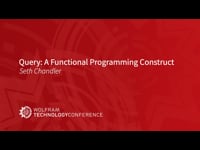 |
Seth Chandler This presentation demystifies the Query function for the intermediate user and shows how users at all levels can effectively use it as a functional programming construct. It draws from parts ... |